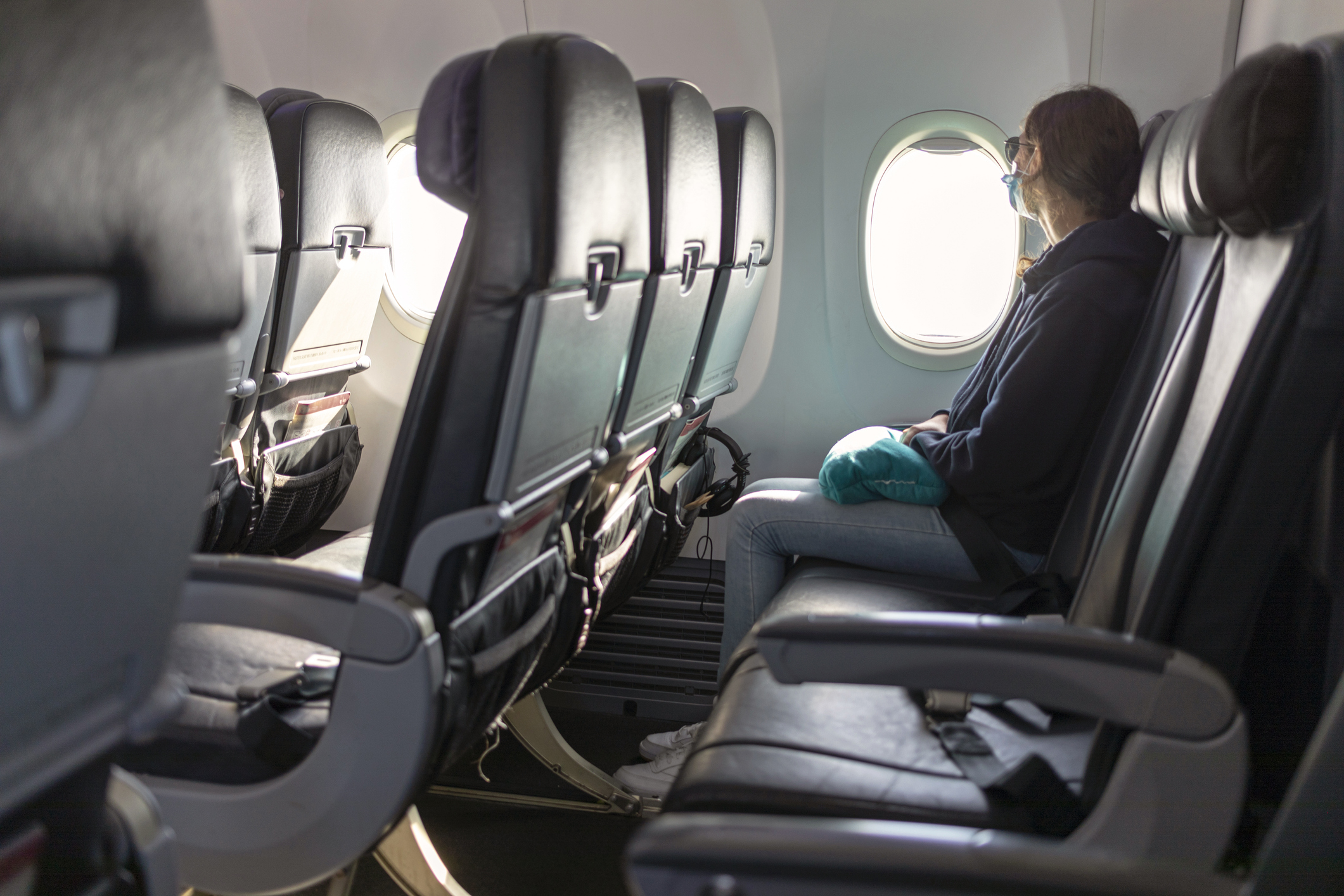
Environmental group Greenpeace called on the European Union to ban short flights on routes where a train journey under six hours was available, in a sign of growing pressure on governments to take bolder steps to avert climate disaster.
More than a third of the 150 busiest short-haul routes within the EU have a viable rail alternative with journey times that meet the test, including popular hops like Paris-Amsterdam, Madrid-Barcelona and Munich-Berlin, according to research published Wednesday, just days ahead of the COP26 climate summit. Links to non-EU states like the U.K., Norway and Switzerland provide added opportunities to displace flying, said the report from Greenpeace and the OBC-Transeuropa think tank.
The demands come days before delegates gather in Glasgow, Scotland, for talks aimed at staving off catastrophic climate change. Greenpeace is seeking more government funding to improve rail infrastructure, make traveling by train cheaper and revive under-used routes including night trains. Reducing air traffic is essential to making rapid cuts in carbon-dioxide emissions, the group said.
Greenpeace is also lobbying for an end to policies that lower the price of airline tickets, such as kerosene and value-added tax exemptions, to help put rail travel on an equal price footing. Monopolies on many train services — including those run by governments — are another factor that tends to make trains more expensive.
The demand for a tougher stance on air travel contrasts with aviation industry calls for a coordinated push, rich with subsidies and incentives, to accelerate the introduction of technologies like sustainable aviation fuels — while fighting off more-drastic measures that would raise costs or clamp down on flying.
The aviation industry is coming under increasing pressure from governments and climate groups to decarbonize, a call that will only be amplified by the climate summit. While long-haul flying is responsible for a bulk of aviation’s emissions, short-haul routes are worse per passenger and per kilometer due to the energy required for taking off, according to Greenpeace.
Planes emit about five times more CO2 than planes on similar routes, the report said — a figure that will vary depending on aircraft type, length of journey, whether the train is diesel or electrified, and how the electricity is generated.
Governments have taken some tentative steps to limit flying, though Greenpeace and others have called for faster action.
“The EU must stop flying into the climate crisis, and implement a serious plan to revitalise our railways, instead of continuing to support air over rail,” Greenpeace said in the report. “Rather than trying to return to the unsustainable air travel volumes of the past, we should focus on adopting less polluting and more climate-friendly solutions.”
The EU has proposed rules to boost the uptake of sustainable aviation fuels, and proposed a tax on aviation fuel as part of its Fit for 55 package.
Some member states have tried to restrict short-haul flights as part of the support packages that bailed out cash-strapped airlines at the height of the Covid-19 pandemic.
Austria has said it will impose a minimum 40-euro ($45) ticket price to discourage non-vital journeys while hiking fees on flights under 350 kilometers (217 miles) to 30 euros. France forced Air France-KLM to pull services between cities that are less than 2 1/2 hours apart by train as part of a 7 billion euro bail-out in 2020.
Exemptions have gutted the French measure, so as a result, only a handful of routes aree likely to be banned, Greenpeace said.
More Must-Reads from TIME
- Donald Trump Is TIME's 2024 Person of the Year
- TIME’s Top 10 Photos of 2024
- Why Gen Z Is Drinking Less
- The Best Movies About Cooking
- Why Is Anxiety Worse at Night?
- A Head-to-Toe Guide to Treating Dry Skin
- Why Street Cats Are Taking Over Urban Neighborhoods
- Column: Jimmy Carter’s Global Legacy Was Moral Clarity
Contact us at letters@time.com